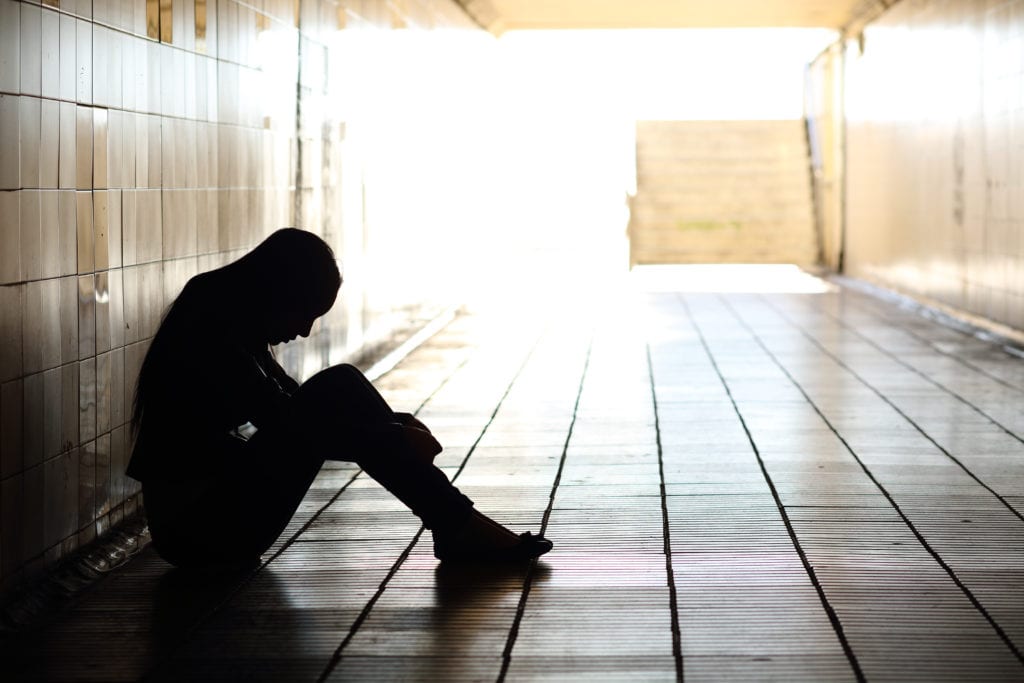The Link Between Suicide and Addiction
Addiction can cause a wide range of health problems. Not only can it deteriorate a person’s body physically, but it can make someone’s mental health much worse. This is because addiction stems from a root cause. Often, this root cause is a co-occurring mental health disorder, such as depression or anxiety. Suicide and addiction are linked in this way, in addition to the impulsive personality traits that people suffering from addiction tend to have.
When someone uses drugs to numb the negative feelings of their depression or anxiety, they might feel a temporary euphoric high. They are able to bury hurtful emotions and thoughts for a short period of time. However, the depression that comes back once the substances have worn off is even worse than before. This causes heavier substance use over time, which leads to addiction, overdose, and death.
Facts About Suicide and Addiction
It is important to understand some of the facts about suicide and addiction, and how quickly addiction can lead to death.
- 66% of people who fall victim to suicide are dealing with depression at the time
- Men who suffer from addiction are twice as likely to fall victim to suicide than men who do not
- Women who suffer from addiction are eight times as likely to fall victim to suicide than women who are not
- Opioid use gives a 40%-60% increased likelihood of suicidal thoughts
- Opioid use gives a 75% increased likelihood of suicide attempt
- Suicide was the 10th leading cause of death in the United States in 2015.
Suicide Warning Signs
Making sure you know the warning signs of suicide is extremely important. Whether you or a loved one might be experiencing any of these, it is important to speak up. Even if someone seems fine on the outside, they may quietly be suffering. If you know someone who is suffering from addiction and also has a history of depression, the likelihood of suicide skyrockets.
- Expressing a desire for death
- Feeling trapped
- Acting agitated or anxious
- Abandoning hobbies or other sources of enjoyment
- Insomnia
- Heavy drug and/or alcohol use
- Extreme irritability or anger
- Feelings of hopelessness
- Reckless behavior
- Isolation from important loved ones
- Avoiding social situations and important events
- A decrease in performance at school or work
How to Get Help
Suicide and addiction stem from a mental health issue, such as depression or anxiety. When mental health issues and addiction mix, a likely result is suicide. Luckily, mental health and addiction are both treatable conditions. If you need help and want to free yourself from suicidal thoughts and your uncontrollable addiction, you can give us a call. All calls are confidential, and we will answer any questions you have about the treatment process. We offer inpatient and outpatient treatment plans, depending on your needs, and can help you live a healthy, happy life in recovery.
If you need to help someone you love, but don’t know how; give us a call. We can provide you with resources to help your loved one, and can fully explain the treatment process. You can open the conversation to getting help with your loved one by writing a letter, sitting them down, and offering your unwavering support during their recovery.
Dual Diagnosis Treatment
Just because someone stops using drugs or alcohol, doesn’t mean that their depression or suicidal thoughts go away. Eventually, their addiction and depression will reignite. That is why it is so important to treat both at the same time through dual diagnosis treatment.
According to the National Alliance on Mental Illness, dual diagnosis is a term for when someone experiences a mental illness and a substance use disorder simultaneously. Either disorder—substance use or mental illness—can develop first. People experiencing a mental health condition may turn to alcohol or other drugs as a form of self-medication to improve the mental health symptoms they experience. However, research shows that alcohol and other drugs worsen the symptoms of mental illnesses.
It’s true – someone who discovers drugs or alcohol may not have any symptoms of their underlying mental illness showing yet. By using drugs or alcohol, the mental illness will come out and can eventually lead to suicide.
About Pinelands Recovery Center
Suicide and addiction are more common than people think. You’ve likely heard the term – “you’ll end up either dead or in jail” – when it comes to using drugs or alcohol to excess. Whether or not people intend to kill themselves using drugs and alcohol, it happens very frequently. The only way you can prevent suicide from happening to yourself or someone you love is to get help. It just might save your life.
Pinelands Recovery Center of Medford is widely known as one of New Jersey’s finest, most respected addiction treatment facilities. With comfortable 30-bed accommodations and 24-hour professional staff, we can offer clients a serene, relaxing environment amid the lush piney woods. This stress-free setting with its sense of warmth and welcoming enables you to feel comfortable and confident about your clean and sober life ahead.
We will establish clear goals, both general in nature and specific to your needs. We continue to monitor those goals, to make sure that our clients are progressing and buying into their recovery plan. We thrive on assisting clients in feeling connected to the recovery community, share and demonstrate effective coping techniques, help clients to modify attitudes and patterns of behavior and everything else you will need to be happy and productive living a sober, healthy life.
We ensure that clients complete their planned concrete tasks, encourage hope, optimism and healthy living. Our recovery program is not a revolving door treatment program; it is a recovery model designed to help clients go on to lead productive, happy lives. For more information, visit pinelandsrecovery.com
